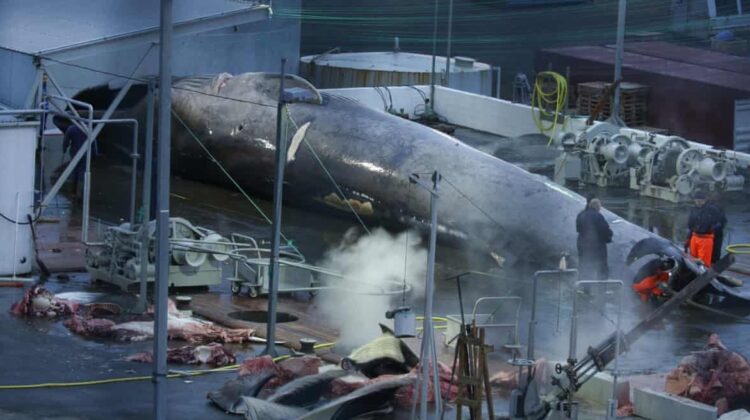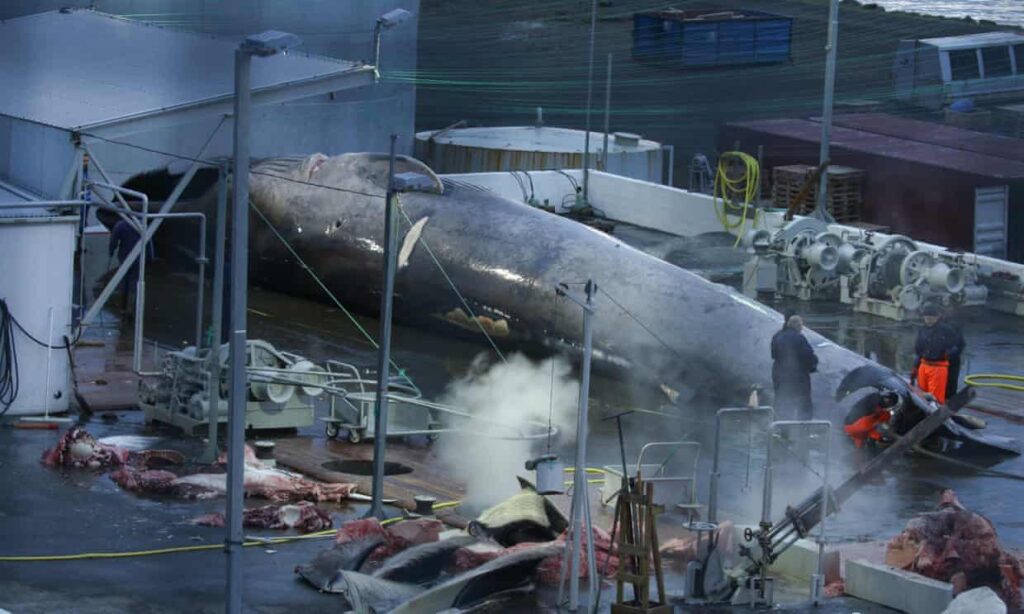
Iceland, along with Norway and Japan, is one of the few countries that still kill whales economically, and the fisheries minister has stated that whaling would be phased out by 2024 as demand declines.
Svandis Svavarsdóttir, a member of the Left Green party, commented in Morgunblai newspaper, “There are few arguments to approve the whale hunt beyond 2024,” when present limits expire.
“There is scant evidence that this behavior has any economic benefit,” she added.
For the years 2019-23, Iceland’s yearly quotas allow for the killing of 209 fin whales (the planet’s second-largest species after the blue whale) and 217 minke whales (one of the smallest).

The two primary license holders, however, have postponed their whale hunts for the previous three years, with one of them putting down its harpoons for good in 2020.
In the last three years, just one whale has been killed, a Minke whale in 2021.
Since Japan, the primary market for Icelandic whale meat, resorted to commercial whaling in 2019 after withdrawing from the International Whaling Commission, demand for Icelandic whale meat has dropped considerably (IWC).
After a no-fishing coastal zone was enlarged, causing whalers to venture even farther offshore, the hunt had become too expensive.
Furthermore, the safety regulations for imported meat were stricter than for domestic goods, making Icelandic exports more challenging.
Icelandic whale meat processing factories were unable to operate normally due to social distancing rules imposed in response to the coronavirus outbreak.
146 fin whales and six minke whales were killed in Iceland’s final full season in 2018.
Despite an IWC prohibition imposed in 1986, Iceland restarted commercial whaling in 2006.
